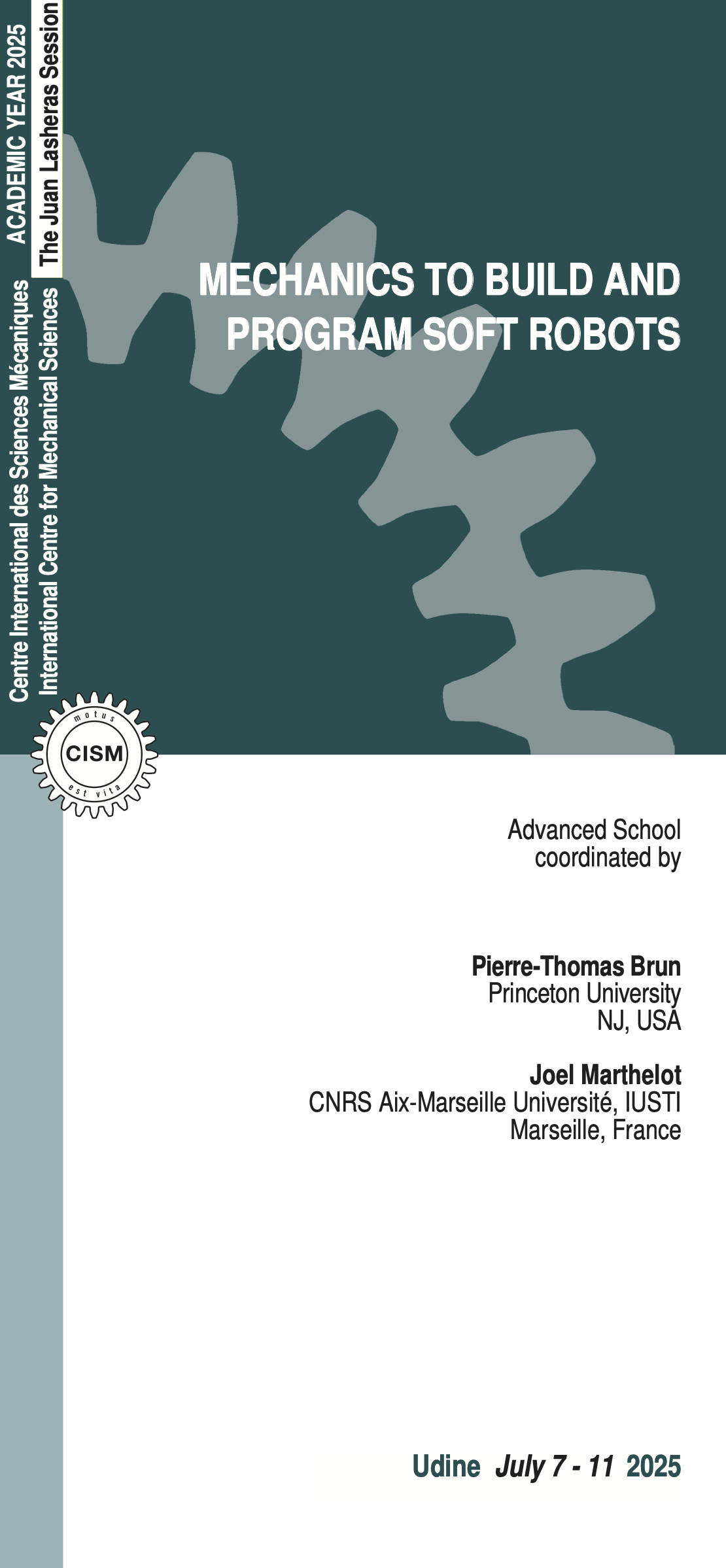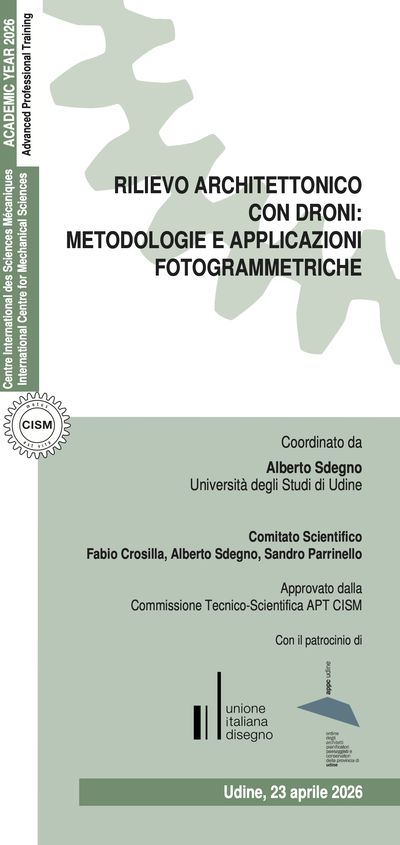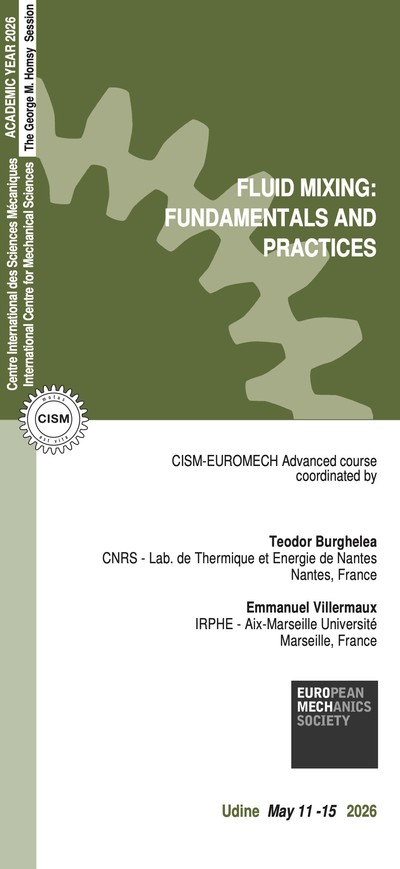Robotics has traditionally been developed using rigid elements designed to resist deformation. But sometimes, soft robots can be better. Soft robots, which can deform into complex shapes, offer unique benefits. They can conform to surfaces more closely, apply forces delicately without harming biological tissues, and remain lightweight. These attributes enable soft robots to perform intricate tasks such as gentle gripping, crawling, or swimming in complex environments.
The development of soft actuators with advanced robotic functionalities hinges on a deeper understanding of how the geometry and structure of soft materials influence their deformation and how these structures can be actuated to achieve specific shapes and forces. This has introduced new challenges in solid and fluid mechanics.
Addressing these challenges requires navigating complex geometries, mechanical instabilities, and the nonlinear elasticity inherent in the large deformations of hyperelastic materials. This CISM International Summer School is designed to introduce the core mechanical principles directly applicable to the design and control of soft robots. The knowledge gained will equip students to tackle open questions and address key challenges in the field of soft robotics. Lectures will integrate concepts from continuum mechanics (nonlinear elasticity, viscoelasticity, mechanical instabilities), fluid-structure interaction, control, and design.
The first two lectures will cover the mechanical foundations of actuation and the mechanics of soft materials, focusing on how mechanical instabilities can be harnessed to program shape, force, and dynamics in soft robots. The next two lectures will dive into numerical tools for predicting soft material deformations and demonstrate how programmable materials can process information to achieve specific deformations. The final two lectures will explore principles of embodied intelligence in soft robotics and emergent properties in active robotic systems.
Throughout the course, students will be exposed to cutting-edge advances in the mechanics of soft robotics, from fundamental models to prototype solutions. This comprehensive training is intended for PhD students and postdocs aiming to apply mechanical insights to develop the next generation of soft robots or to overcome existing challenges with innovative mechanical approaches.
Audoly, B. and Pomeau, Y., Elasticity and Geometry: From Hair Curls to the Non-Linear Response of Shells, Oxford University Press, 2010.
Bertoldi, K., Vitelli, V., Christensen, J. and Van Hecke, M., 2017. Flexible mechanical metamaterials. Nature Reviews Materials, 2(11), pp. 1-11.
Van Rees, W.M., Vouga, E. and Mahadevan, L., 2017. Growth patterns for shape-shifting elastic bilayers. Proceedings of the National Academy of Sciences, 114(44), pp. 11597-11602.
Jones, T.J., Jambon-Puillet, E., Marthelot, J. and Brun, P.T., 2021. Bubble casting soft robotics. Nature, 599(7884), pp. 229-233.
Brandenbourger, M., Locsin, X., Lerner, E. and Coulais, C., 2019. Non-reciprocal robotic metamaterials. Nature Communications, 10(1), p. 4608.
Kwakernaak, L.J. and Van Hecke, M., 2023. Counting and sequential information processing in mechanical metamaterials. Physical Review Letters, 130(26), p. 268204.
Laschi, C., Mazzolai, B. and Cianchetti, M., 2016. Soft robotics: Technologies and systems pushing the boundaries of robot abilities. Science Robotics, 1(1), p. eaah3690.
Gorissen, B., Melancon, D., Vasios, N., Torbati, M. and Bertoldi, K., 2020. Inflatable soft jumper inspired by shell snapping. Science Robotics, 5(42), p. eabb1967.
6 lectures on:
Numerical methods that account for geometric nonlinearities, mechanical instabilities and the nonlinear elasticity involved with large deformations in hyperelastic materials.
5 lectures on:
Physical properties of active soft solids with applications in soft robotics for one-way transport, non-reciprocal behavior, self-oscillation, and controlled amplification.
6 lectures on:
Mechanics of 2D rods, Euler's elastica, and their applications in soft robotics.
replacing Barbara Mazzolai
6 lectures on:
Role of biology in the design of soft adaptable robots, bioinspired control and embodied intelligence principles for soft robotics.
6 lectures on:
Use of information-processing materials, emergent memory, and hysterons to program mechanical metamaterials and control the behavior of soft robots.
6 lectures on:
Mechanics of plates and shells and their application to shape changing elastic structures.
ADMISSION AND ACCOMMODATION
The course is offered in a hybrid format, allowing participants the flexibility to attend either in person or remotely via the Microsoft Teams platform.
Admission to on-site attendance is granted on a first-come, first-served basis to comply with the capacity of the lecture room.
Application forms should be submitted online through the website: http://www.cism.it. A confirmation message will be sent to participants whose applications are accepted.
Registration fees:
- Early Bird On-Site Participation: € 650.00 + VAT* - Deadline: May 7, 2025
- Late On-Site Participation: € 800.00 + VAT* - Deadline: June 24, 2025
- Live Streaming Online Participation: € 250.00 + VAT* - Deadline: June 24, 2025
On-site participation includes a complimentary bag, five fixed menu buffet lunches, hot beverages, downloadable lecture notes.
Online participation includes downloadable lecture notes.
Upon request, and subject to availability, a limited number of on-site participants can be accommodated at the CISM Guest House for € 35 per person per night. To request accommodation, please contact foresteria@cism.it.
CANCELLATION POLICY
Applicants may cancel their registration and receive a full refund by notifying the CISM Secretariat in writing (via email) no later than:
- May 7, 2025, for early bird on-site participation;
- June 7, 2025, for late on-site participation;
- June 24, 2025, for online participation.
No refunds after the deadlines. Cancellation requests received before these deadlines and incorrect payments will be subject to a € 50.00 handling fee.
GRANTS
A limited number of participants from universities and research centers who do not receive support from their institutions can request a waiver of the registration fee and/or free lodging.
Requests should be sent to the CISM Secretariat by May 7, 2025, along with the applicant's curriculum vitae and a letter of recommendation from the head of the department or a supervisor confirming that the institute cannot provide funding. Preference will be given to applicants from countries that sponsor CISM.





